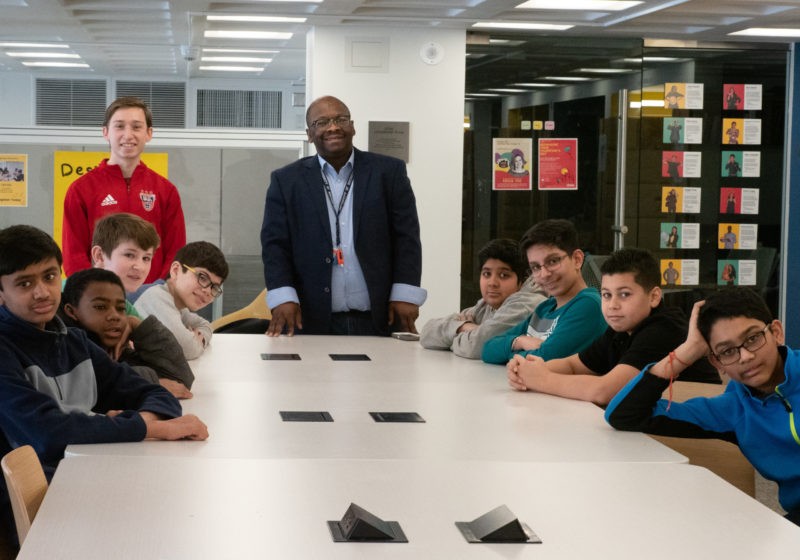Growing up, UR alum Kevin Knight ‘89 never thought there was a difference between going to school in the city, and going to school in the suburbs.
A city student himself, Knight described spending summer days at UR meeting research scientists, and said that this gave him valuable insight into the real world application of science.
But, later on, he realized this was not the case for everyone. Urban students who attend suburban schools via the Urban-Suburban Inter District Transfer program don’t have the same opportunities to attend scientific events as those who go to urban schools.
“Book learning is great, [but] having the experience of feeling and touching the world gives real meaning to what you learn in the book,” Knight said.
He said he thinks urban students in suburban schools are at a disadvantage because they don’t have the chance to view things they learn in school in real-life contexts. Recognizing the disadvantage this placed on suburban students is what drove Knight to create the Urban Suburban Science Team Stem program, which trains middle-school and high school students for science competitions.
Knight went on to get a Masters’ degree in Public Health at the University of Illinois but came back to Rochester to raise his family and serve the community, part of which was to provide kids the opportunities he had as a youth.
When he was young, he said, the city of Rochester had many STEM programs provided by UR and the Rochester School District. These programs were supported financially by Kodak, Bausch and Lomb, and Xerox. But as these companies downsized, the programs were scrapped.
Knight has always been the primary sponsor of the Urban Suburban STEM program. “I feed the kids, I transport the kids,” Knight explained. But as the program expanded, he has had to go to local banks and organizations like Wegmans for more support.
Knight and his students have competed in cities like Buffalo, New York City, Indianapolis, Minneapolis, South Carolina, and North Carolina, and won. For the kids, this is a major confidence boost and makes them hungry for more. The program has grown from about five students to 14. Knight brings these students to UR because of the college immersion aspect. “You might be the smartest kid in your class right now, but when you’re in college, they’re all smart,” Knight said.
Last year, Knight’s high school students won the NOBCCHE National Science Bowl competition in St. Louis, MO. And currently, his middle school students are getting ready for a Department of Energy (DOE) competition in Buffalo, which is on Feb. 29. “They won second place last year, we expect to win first place this year,” a confident Knight said. Two years ago, they won the Buffalo competition and got an all-expenses-paid trip to Washington D.C. to compete against the best teams in the country.
The DOE National Science Bowl Regional represents all of Western New York, from the Finger Lakes to the Buffalo area. Unfortunately, in New York State, this program is collapsing. The number of competition sites has dramatically decreased over the years. The last three years, the competition has been held in New York City. Knight says it is sad that the school his program is affiliated with — Brighton High School — is the only Western New York school that competed when there are more competent schools in the area.
This is in large part due to the distance students would have to travel. Knight is trying to bring back the local DOE Regional to Rochester. He has been engaging with UR’s student groups such as the National Society of Black Engineers (NSBE), STEM Initiative, and the Society of Asian Scientists and Engineers (SASE), and has been looking for private sponsors to help bring the program back to Rochester.
80% of students in Knight’s program are suburban students who have heard about it through word of mouth. A current student at the Warner School of Education, Knight wants to find out what motivates children to get into STEM programs. Going forward, he wants more girls and minority students to join and stay in the program.
Correction (2/18/20): An earlier version of this article said Knight observed that suburban students were disadvantaged compared to urban students. In fact, it was urban students who attend suburban school via the Urban-Suburban Inter District Transfer program.


